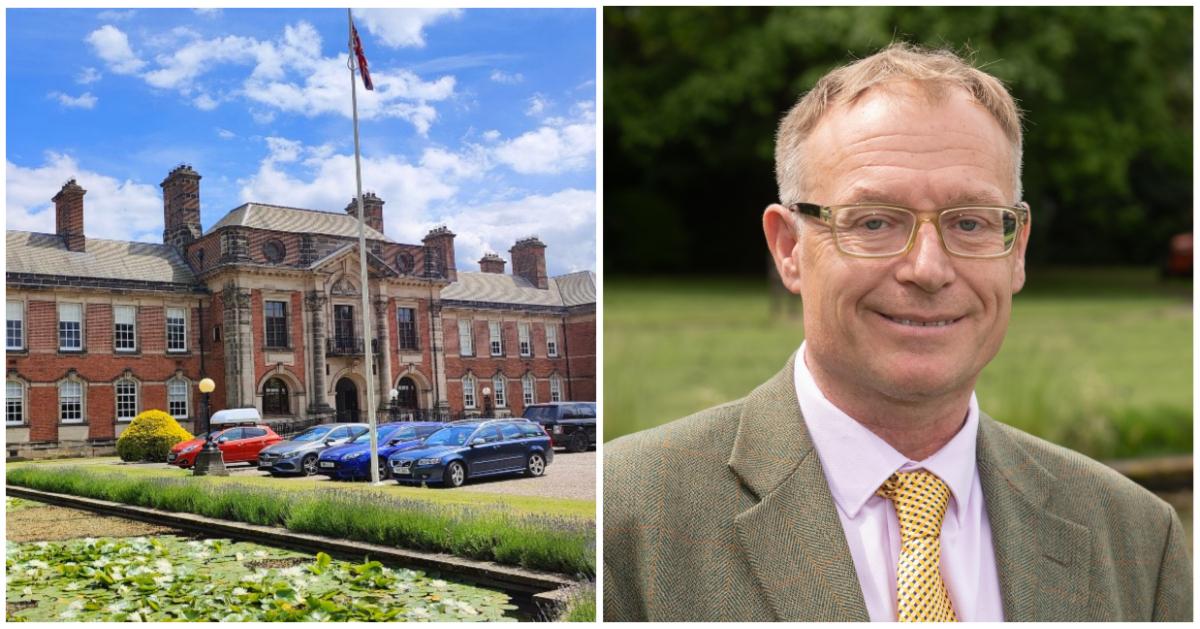Subscribe to trusted local news
If you are accessing this story via Facebook but you are a subscriber then you will be unable to access the story. Facebook wants you to stay and read in the app and your login details are not shared with Facebook. If you experience problems with accessing the news but have subscribed, please contact subscriptions@thestrayferret.co.uk. In a time of both misinformation and too much information, quality journalism is more crucial than ever. By subscribing, you can help us get the story right.
- Subscription costs less than £1 a week with an annual plan.
Already a subscriber? Log in here.
11
Oct 2022
Harrogate district council tax set to fall by £23 under devolution

Council tax bills for a Band D property in Harrogate are set to fall by £23.47 for the next two years as part of the transition to the new North Yorkshire Council.
Harrogate Borough Council currently charges the highest council tax of the seven district councils in North Yorkshire.
An average band D property in the district is currently £1,723.27, compared with £1,586.83 in Hambleton, which has the lowest level of council tax in the county.
The seven councils will be abolished on April 1 as part of the government's devolution agenda and North Yorkshire County Council is to meet next week to discuss ways to harmonise the level of payment across the county.
Under plans being drawn up, Band D bills in the Harrogate district would fall by £23.47 a year for two years while Hambleton's bills would increase by £89.49.
However, the rises and falls due to harmonisation do not take into account the annual increase in council tax bills, which is set to be approved by county councillors in February. The figures also relate to just the precept for county and district authorities, and do not include money for North Yorkshire Police, the county’s fire brigade and parish or town councils.
If a Harrogate town council is formed, the precept for people living in the town council area would increase.
Decision on Tuesday
The advent of a new council covering the whole of the county in April means there is a legal requirement to ensure all council taxpayers in North Yorkshire are charged the same amount.
The proposals to phase this in over the next two years will be considered by members of North Yorkshire County Council’s decision-making executive when they meet on Tuesday next week. They are based on recommendations by a cross-party working group of councillors.
The working group, which was established by the county council’s executive in June, considered a range of proposals, including harmonising council tax bills over a period of up to eight years.
Read more:
- Harrogate council refuses to say if chief executive will get payout package
- Councillors vote to defer decision on 53 homes in Bilton
North Yorkshire County Council’s executive member for finance, Cllr Gareth Dadd, who is also the authority’s deputy leader, said:
There would be huge variations in the amount of funding generated if the decision was taken to opt for moving council tax levels to the lowest amount seen in Hambleton or choosing to adopt the highest level in Harrogate.
If council tax bills were brought in line with Hambleton, there would be an annual reduction of funding in the region of £21 million, falling from the current level of £401.8 million to £380.4 million.
By comparison, an extra £11.3 million would be generated by increasing council tax bills to the level currently paid in the Harrogate district, with the average across North Yorkshire for owners of a Band D property paying £1,723.27 instead of £1,676.32.
Funding from council tax is used to finance services ranging from waste collection and recycling to highways maintenance and adult social care.
0